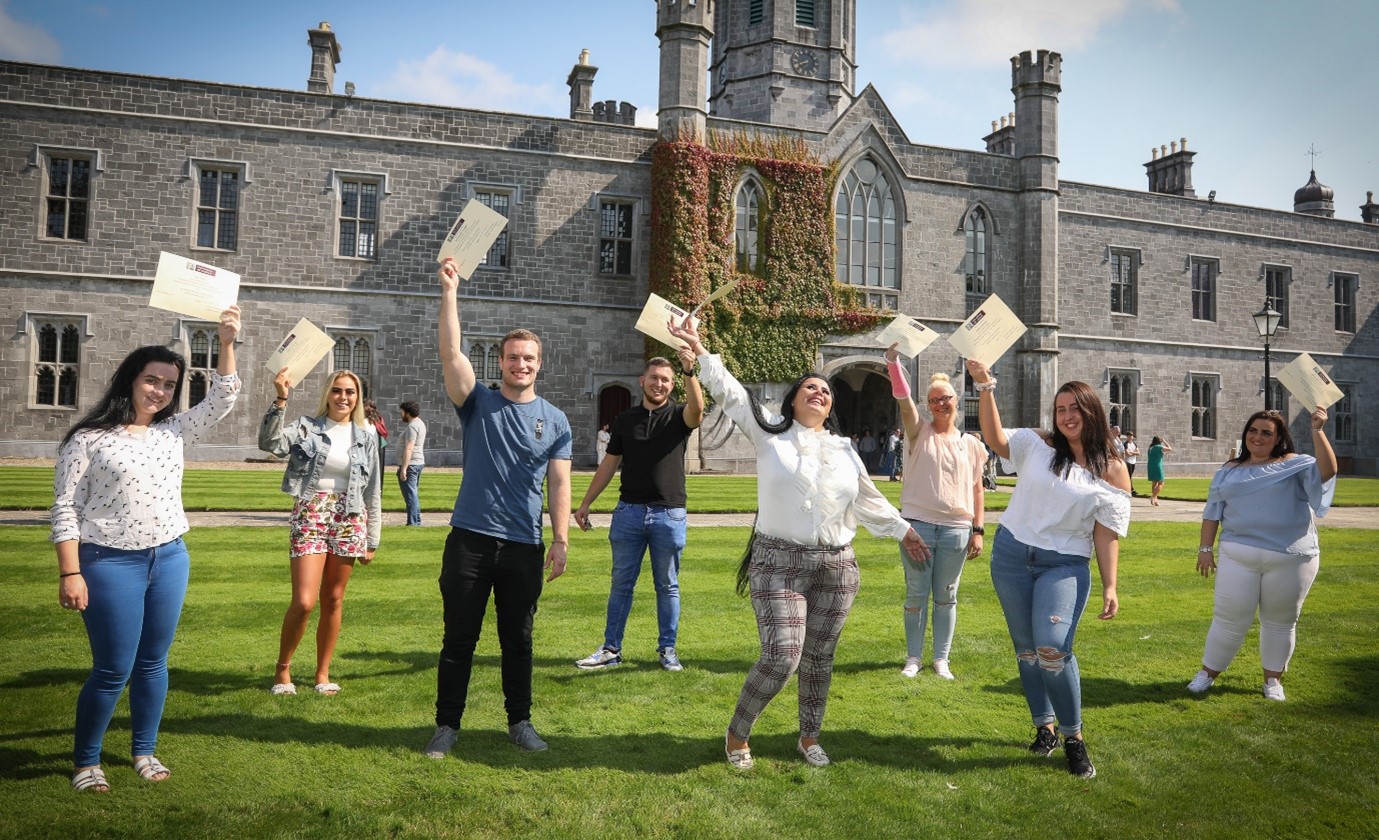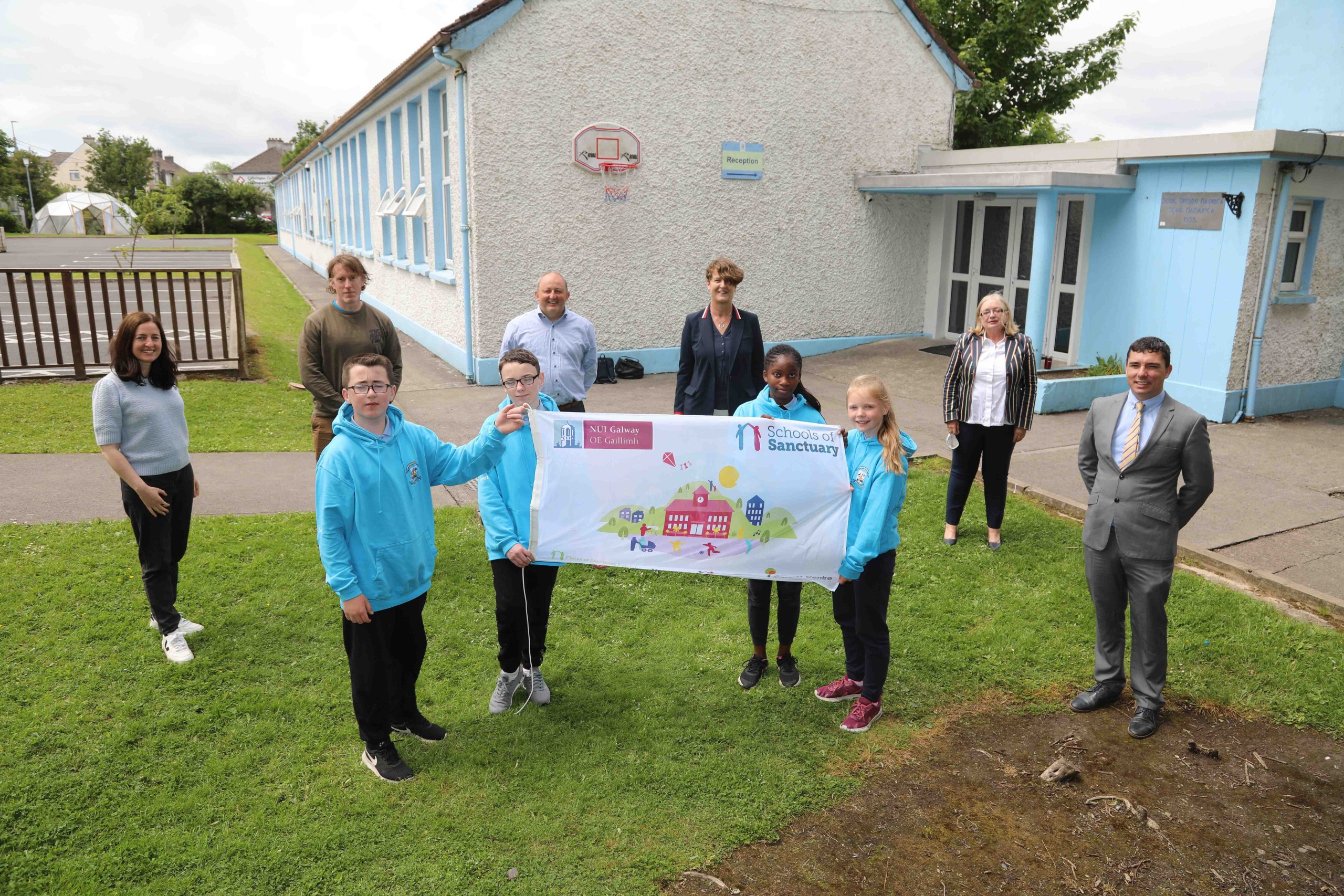
Find information on how to make a Protected Disclosure under the external procedures in place in the HEA.
Sustainable pathways to Higher Education: Delivering on educational opportunities for under-represented groups at NUI Galway

Who we are
As a regionally engaged university in the west of Ireland, NUI Galway is committed to promoting diversity, to combating educational disadvantage in our region and beyond, and to ensuring university education is for everyone. Our strategic plan is built on a foundation of core values that define NUI Galway’s purpose and priorities: respect, openness, sustainability and excellence.
What we did
We increased the percentage of students from traditionally underrepresented groups at undergraduate level to 24.7%, from a baseline of 21% in 2017/18. This was achieved when our Access Centre successfully developed and delivered partnerships and initiatives for target groups including Further Education and Training (FET) learners, people with disabilities, and members of the Traveller Community. This is a multi-faceted approach to facilitate access, progression and success for this learner population. It is inclusive of vulnerable learners, underrepresented groups and the most marginalised, is enabling students to engage and stay with learning in a transformational way.
Impact Achievement
FET learners
Established in 2018, the Further Education (FE) to Higher Education (HE) Working Group brought key stakeholders from across the University and local FE providers together to expand the number and breadth of undergraduate opportunities available for FET students, resulting in:
– A 245% increase in undergraduate progression opportunities for FET learners (66 in 2017/18 – 228 in 2020/21)
– A 253% increase in the number of FET students entering NUI Galway over a 4-year period
Students with disabilities
The Disability Access Route to Education (DARE) scheme and NUIG’s Access and Foundation Courses raised awareness of disability in the incoming and current student community through school visits and open days. The message regarding disability support was embedded deeply in orientation and transition activities and through Programme for Access to Higher Education (PATH) funded Advanced Teacher Status (ATS) mentoring activities. This benefited students who might otherwise keep their disability hidden and led to:
– A 102% increase in students registered with a disability over a 6-year period
– A 43% increase in students entering through the DARE scheme from the academic year 2017/18 to 2020/21
– A 58% increase in students registering for disability support with a mental health condition as a primary disability
Members of the Travelling Community
In 2018, the Schools of Sanctuary programme was established to empower Irish Travellers to cultivate their sense of belonging and enhance their knowledge of pathways into HE. With support from the local Schools of Sanctuary Coordinator and the national Schools of Sanctuary Committee, four schools in the region (two of which were the first to receive designation as Schools of Sanctuary in the region) undertook the journey of becoming a School of Sanctuary by taking part in intercultural celebrations and developing curricular content which celebrated diversity and inclusion. Workshops were also facilitated on the opportunities and various entry routes that now exist for students to progress to higher education. This early-intervention initiative was followed in June 2021 with the Educational Transition Project (ETP) for Irish Traveller students. In collaboration with community groups supporting Irish Travellers, this multi-disciplinary project supported 14 Irish Travellers to decide what the next the best step was for them in pursuing their educational goals and progressing to HE. The success of these initiatives has been followed by a one-year Mincéirs Misl’d: University Programme from August 2021 to June 2022. Funded by the National Forum for the Enhancement of Teaching and Learning in Higher Education, this programme develops an Irish Traveller Community embedded and culturally inclusive model to identify and overcome barriers to access, progression, retention, and success in higher education. Other key developments include the establishment of the Traveller Education Officer Post, annual Traveller Ethnicity Celebrations and the continued funding of the Mincéirs Misl’d project.
The visible impact of these initiatives is embodied in the diversity of our pre-university access programme students (with 9 Irish Travellers doing this course in 2020/21 compared to 4 in 2017/18); 1916 Bursary and University of Sanctuary Scholarship (with 8 scholarships awarded in 2019/20 increasing to 12 in 2020/21) recipients and in the number of students joining the Mincéirs Whiden Society. Ireland’s only Traveller student society, it was awarded NUI Galway Best New Society in 2020 and was followed by the election of a Traveller Student to the Ethnicity Officer post in the Students’ Union in 2021/22 and 2022/23.

Schools of Sanctuary – Scoil Bhríde Shatalla 2021
What we learned
– Internal collaboration is essential – all relevant institutional stakeholders (across our colleges, schools and units) need to engage to ensure rapid change.
– The power of external collaboration – the involvement of external representatives in the process provided key information and generated synergies to identify and develop programmes and initiatives likely to have the greatest impact.
– Availability and accessibility of an evidence base. Up-to-date, granular, current and predictive data on our students enabled us to accurately identify where opportunities could increase, and which target groups and entry routes were in particular need of focus.
– The need for a multidisciplinary, holistic approach is essential to the development of our work with target groups.
– Awareness raising and empowerment activities during school visits, Open Days and first year Orientation has enabled disability support to be embedded within the operational and cultural dimensions of the University.
– A whole of university approach is crucial to enhancing the access and inclusion agenda in HEIs.